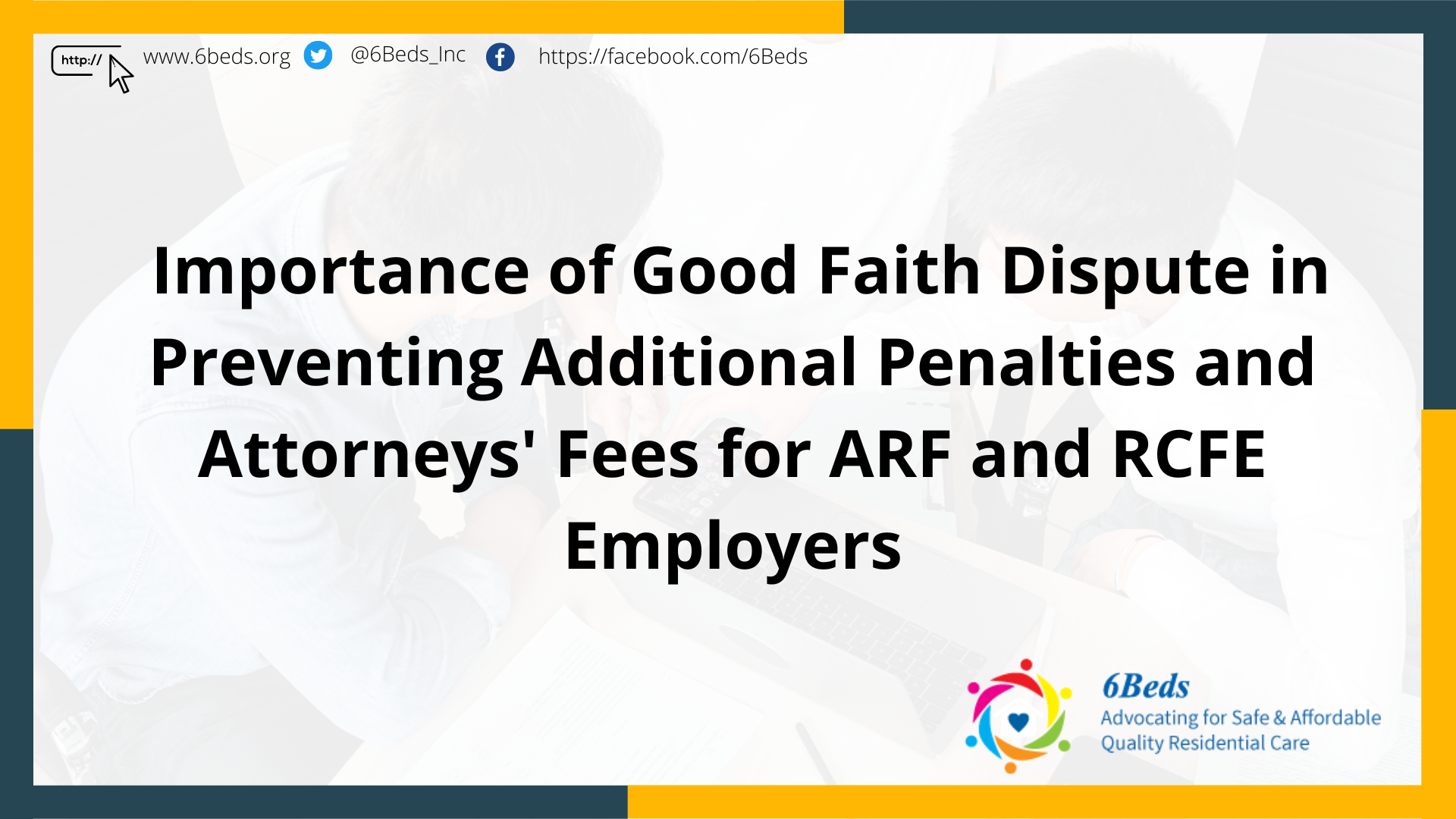For ARF and RCFE employers, compliance with wage and hour laws is crucial to avoid penalties and lawsuits. However, even with the best intentions, employers may make mistakes that lead to legal disputes. In such cases, an employer’s good faith dispute can prevent employees from collecting additional penalties and attorneys’ fees for violations of Labor Code sections 203 and 226.
The recent decision in Naranjo v. Spectrum Security Services clarified the importance of an employer’s good faith dispute in preventing additional penalties and attorneys’ fees for wage and hour violations. Under California law, employees can claim additional penalties and fees if they believe they have not been paid all the wages they are owed. To win these claims, employees must prove that the employer’s failure to pay was either “willful” under Section 203 or “knowing and intentional” under Section 226.
The Court in Naranjo v. Spectrum Security Services held that if an employer had a good faith belief that it was in compliance with the law when final wages were due, the employer’s violation was not considered willful under Labor Code Section 203. Similarly, if the employer can show that it had a good faith belief that it was not violating any laws when it did not include certain information on wage statements, it could not have knowingly and intentionally violated Section 226.
This decision provides some relief for ARF and RCFE employers facing wage and hour lawsuits. However, it is still crucial to ensure compliance with all applicable wage and hour laws to avoid lawsuits and penalties in the first place. Here are some tips to help ensure compliance:
- Keep accurate records of all hours worked and wages paid to employees, including tracking regular and overtime hours, breaks, and meal periods.
- Ensure that all employees are classified correctly as exempt or non-exempt under the Fair Labor Standards Act (FLSA) and applicable state laws.
- Provide wage statements that comply with California Labor Code Section 226, including all necessary information such as gross wages earned, total hours worked, and any deductions made.
- Pay employees on time and in accordance with all applicable laws, including paying overtime for all hours worked over 40 in a workweek and providing meal and rest periods as required by law.
- Stay up-to-date on changes to wage and hour laws at the federal and state levels.
By following these tips and staying in compliance with all applicable wage and hour laws, ARF and RCFE employers can avoid penalties and lawsuits while providing fair and just compensation to their employees. In cases where a dispute arises, employers should document their good faith belief and provide evidence to support it.
In conclusion, an employer’s good faith dispute can prevent employees from collecting additional penalties and attorneys’ fees for wage and hour violations. However, it is still important for ARF and RCFE employers to ensure compliance with all applicable laws to avoid legal troubles. By following the tips above and documenting good faith beliefs in the event of a dispute, ARF and RCFE employers can protect themselves from penalties and lawsuits while providing fair compensation to their employees.
